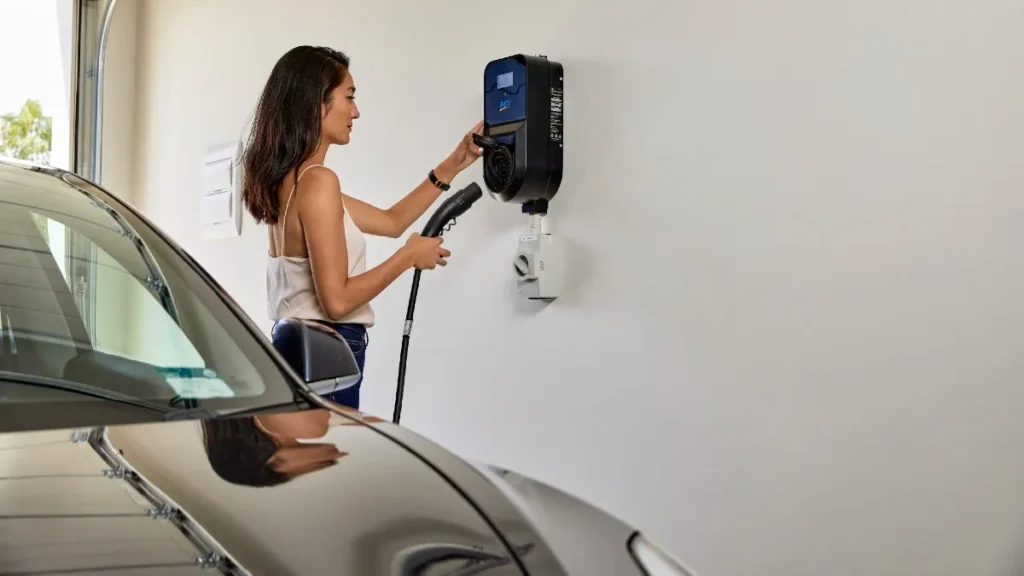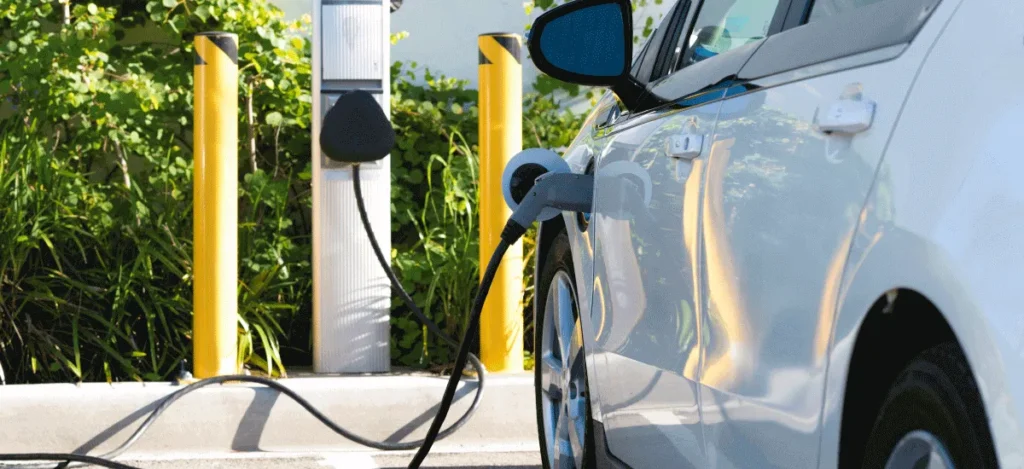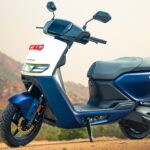Electric vehicles (EVs) are no longer a futuristic concept in India—they’re a growing reality. With the rise in Electric cars on our day to day live, having a reliable and efficient home charging solution has become essential. This guide aims to help you navigate the options and choose the best EV charger for your needs.

Why a Home EV Charger Matters
While public charging stations are expanding, relying solely on them can be inconvenient. A home charger offers:
- Convenience: Charge your vehicle overnight or during off-peak hours.
- Cost Savings: Take advantage of lower electricity rates at home.
- Battery Health: Regular, controlled charging can extend battery life.
In essence, a home charger ensures your EV is always ready when you are.
Types of EV Chargers
Understanding the types of chargers is crucial:
- Level 1 (AC Charging): Uses a standard 230V outlet. It’s the slowest option, adding about 8-10 km of range per hour. Suitable for plug-in hybrids or emergency use.
- Level 2 (AC Fast Charging): Requires a dedicated 240V circuit. Offers faster charging, adding approximately 25-30 km of range per hour. Ideal for daily home charging.
- DC Fast Charging: Primarily found in commercial settings. Can charge an EV up to 80% in 30-60 minutes. Not typically used for home installations due to high costs and infrastructure requirements.
Also Read – Mahindra XEV 9e – India’s Fastest Electric SUV
Key Features to Consider
When selecting a home EV charger, consider the following:
- Power Output: Measured in kilowatts (kW). Common home chargers range from 3.3 kW to 7.4 kW. Higher power means faster charging but may require electrical upgrades.
- Connector Type: Ensure compatibility with your EV. Most Indian EVs use the Type 2 connector.
- Smart Features: Some chargers offer Wi-Fi connectivity, allowing you to schedule charging, monitor usage, and receive updates via a mobile app.
- Safety Certifications: Look for chargers with certifications from recognized bodies to ensure safety and reliability.
- Installation Requirements: Assess whether your home electrical system can support the charger or if upgrades are needed.

Top EV Chargers in India (2025)
Based on current offerings and user feedback, here are some top-rated home EV chargers:
- Tata Power EZ Charge Home Charger
- Power Output: 3.3 kW to 7.4 kW
- Features: Smart connectivity, user-friendly app, widespread service network.
- Price Range: ₹30,000 – ₹50,000
- Ideal For: Tata EV owners and those seeking a reliable, branded solution.
- ABB Terra AC Wallbox
- Power Output: Up to 22 kW
- Features: Compact design, robust build, smart capabilities.
- Price Range: ₹60,000 – ₹90,000
- Ideal For: Users desiring a premium, high-speed charging experience.
- Delta AC Mini Plus
- Power Output: 7.4 kW
- Features: LED indicators, RFID authentication, compact size.
- Price Range: ₹40,000 – ₹60,000
- Ideal For: Urban dwellers with limited space.
- Exicom Harmony AC Charger
- Power Output: 3.3 kW to 7.4 kW
- Features: Smart charging, mobile app integration, durable design.
- Price Range: ₹35,000 – ₹55,000
- Ideal For: Users seeking a balance between features and affordability.
- Magenta ChargeGrid
- Power Output: 3.3 kW to 7.4 kW
- Features: Smart app, energy monitoring, scalable solutions.
- Price Range: ₹30,000 – ₹50,000
- Ideal For: Environmentally conscious users looking for sustainable solutions.
Installation and Costs
The total cost of setting up a home EV charger includes:
- Charger Unit: ₹30,000 – ₹90,000, depending on brand and features.
- Installation: ₹10,000 – ₹30,000, varying based on electrical upgrades and labor.
- Additional Costs: Potential expenses for wiring, circuit breakers, and permits.
It’s advisable to consult with certified electricians and check for any local subsidies or incentives that can offset costs.
Future-Proofing Your Investment
The government offers different types of financial incentives to make electric vehicles more affordable for you. You can find more information regarding this in Niti Aayog official website. As EV technology evolves, ensure your charger remains compatible:
- Scalability: Opt for chargers that can handle higher power outputs if you plan to upgrade your EV.
- Software Updates: Choose brands that offer firmware updates to keep your charger up-to-date.
- Warranty and Support: Consider products with robust customer support and warranty periods.
Conclusion
Investing in a home EV charger enhances the convenience and efficiency of owning an electric vehicle. By understanding the types, features, and costs, you can select a charger that aligns with your needs and future plans. As the EV landscape in India continues to grow, having a reliable home charging solution positions you ahead in the journey toward sustainable mobility.
Note: Prices and features are indicative and subject to change. It’s recommended to consult with manufacturers or authorized dealers for the most current information.



Thank you for your sharing. I am worried that I lack creative ideas. It is your article that makes me full of hope. Thank you. But, I have a question, can you help me?